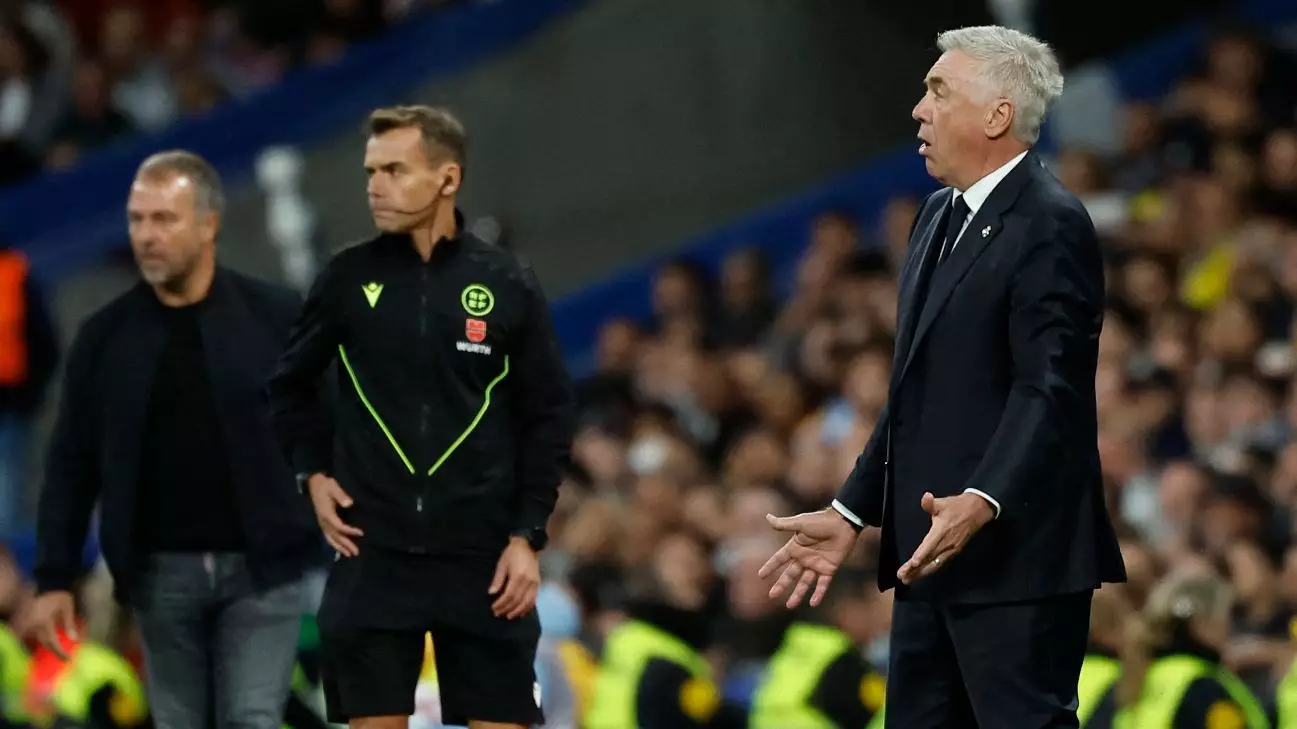El Clásico, the fierce rivalry between Real Madrid and Barcelona, delivered yet another electrifying encounter that left deep imprints on both sides. Following their dominant 4-0 win at the Santiago Bernabéu, Barcelona not only decisively broke Madrid’s impressive 42-match unbeaten streak in LaLiga but also propelled themselves six points ahead at the top of the table. However, beneath the ecstatic celebration, there lay a palpable tension that emerged from the match, particularly regarding the conduct displayed by Barcelona’s bench after their fourth goal.
The Match Overview: A Tale of Two Halves
The meeting unfolded with the intensity characteristic of such encounters, as the first half showcased a balanced contest between the two Spanish giants. Despite the absence of goals during that initial period, both teams created several scoring opportunities. However, Real Madrid’s failure to convert those chances would haunt them when the second half commenced. Within just three minutes, the game took a decisive turn as Robert Lewandowski scored twice, followed by Lamine Yamal becoming the youngest scorer in Clásico history at just 17 years old, and Raphinha capped off the rout with a remarkable tenth goal of the season.
Carlo Ancelotti, the Madrid coach, assessed his team’s performance and voiced his concerns—especially over how yielding they became after conceding. “Until the goal, it was an even game,” he noted. “We had chances and could have scored, but we weren’t clinical.” Ancelotti’s analysis reflected a common adage in football: teams often need to seize the moment, particularly in high-stakes matches like El Clásico.
While Barcelona celebrated their goals exuberantly, the behavior of one of their assistant coaches ignited a controversy that overshadowed a significant victory. Ancelotti confronted Barcelona’s head coach Hansi Flick over the assistant’s conduct, which he deemed disrespectful as it was conducted close to the Madrid bench. This led to a post-match exchange between the two coaching staffs—an indication of how the emotions ran high following such a crucial victory.
Ancelotti later clarified that he held no personal grievance against Flick but rather aimed his criticism at the assistant’s lack of decorum. Flick acknowledged the situation during his interview, stating, “it’s normal in this situation, when you celebrate a goal maybe it’s not … we’re old enough to speak about that.” This interaction underscores the raw emotions that accompany such fierce rivalries, where even subtle behaviors can become focal points of contention.
For Real Madrid, all eyes were also on Kylian Mbappé, who had a night fraught with challenges. Two of his goals were ruled offside, and he was flagged eight times throughout the match—tying him for the most offside calls in a LaLiga game in the past 15 seasons. His inability to capitalize on opportunities only served to heighten the frustrations within the Madrid ranks. Ancelotti acknowledges this by pointing out how risky it was to push Mbappé’s positioning against Barcelona’s high defensive line. Although he recognized the talent of the squad, he lamented, “We took risks and they’re a team in form who were dangerous on the break.”
Despite these setbacks, Ancelotti maintained a sense of optimism, insisting that the loss must serve as a learning experience. Madrid, he noted, needed to bounce back and display resilience, just as they had done following previous defeats.
Barcelona’s Path Forward: A Rising Team Spirit
On the other hand, the win culminated in a strong week for Hansi Flick and Barcelona, who had steamrolled Bayern Munich just days earlier. Flick adopted a measured tone despite the triumph, highlighting the importance of continuing to improve rather than becoming complacent. He expressed contentment in not only their performance but also his role at the club, stating, “It’s an amazing job… it feels really good.” This aligns with his strategic vision for the team as they build confidence on the back of significant victories.
Barcelona’s celebrations in the aftermath reflected the rejuvenated spirit within the club, especially after a challenging period. As players celebrated in the dressing room, this newfound morale can be expected to fuel their performance in future encounters.
El Clásico once again proved to be more than just a match; it was a saga of resilience, strategy, and emotional intensity. The spectacle illustrated how a single game could shift dynamics in LaLiga while shedding light on the importance of sportsmanship amid fierce competition. As both teams regroup—Madrid to reclaim their form and Barcelona to sustain their momentum—the rivalry promises to continue captivating football fans across the globe. The tension will surely remerge in future clashes, defining the essence of what it means to compete at the highest level in the beautiful game.

